They are the original inhabitants of Australia and its nearby islands. Today, the Aboriginal Australians or Aborigines are a marginalized people living on the fringes of Australian society.
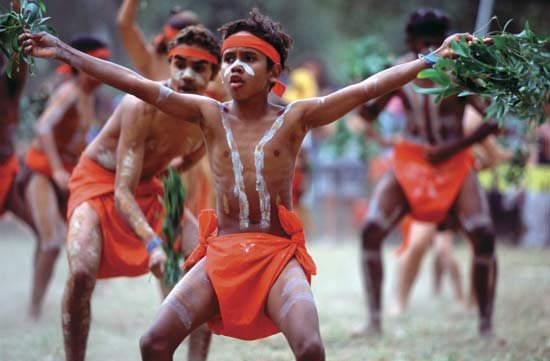
It is generally believed that the Aborigines are the descendants of a single migration into the Australian continent from the first human populations that left Africa 64,000 to 75,000 years ago. Aboriginal people mainly lived as hunter-gatherers, hunting and searching for food from the land.
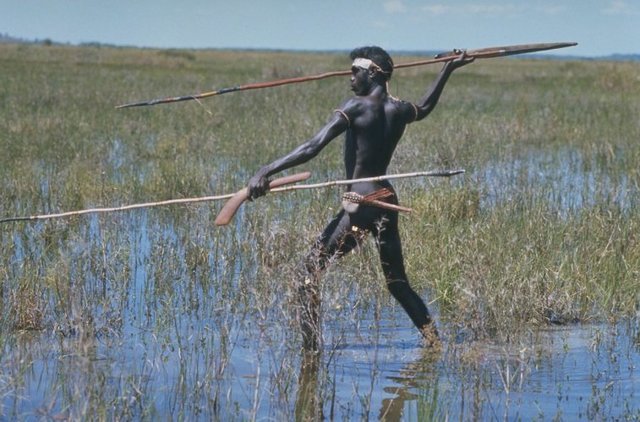
Aboriginal society was generally mobile, moving across different areas as seasons changed and where food was available. But Aborigines mobility was reduced when the British started the colonization of Australia with the arrival of the First Fleet in Botany Bay in 1788. The new settlers converted rural lands for sheep and cattle grazing, thereby reducing the area for hunting, foraging and agriculture of the Aboriginal people.
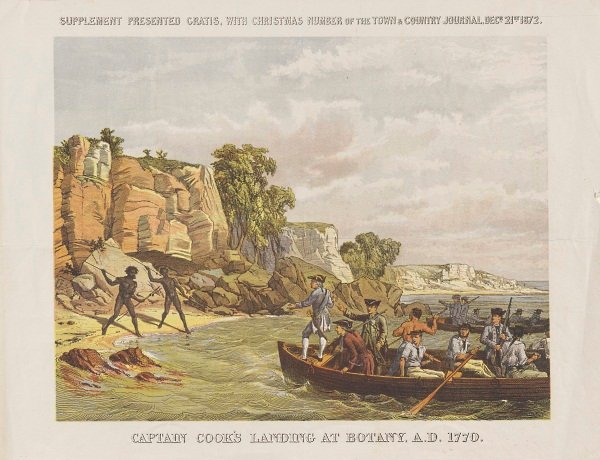
According to historians, clashes with British settlers drove many Aborigines away from their original land. The contact between the new settlers and the indigenous people led to the decimation of many native groups due to dispossession and in thousands of cases, outright murder. As populations declined and were fragmented, many unique linguistic and cultural traditions as well as valuable knowledge about the land and its fauna and flora were lost forever.

Land theft also destroyed many Aboriginal communities. Seizure of the Australia by settlers was done in the name of the British crown and under fictitious laws such as the Terra Nullius, which upheld the notion that Australia was effectively unoccupied before British colonization. The basic idea was that it was impossible to rob Aboriginal people of land, as they had never previously owned land.
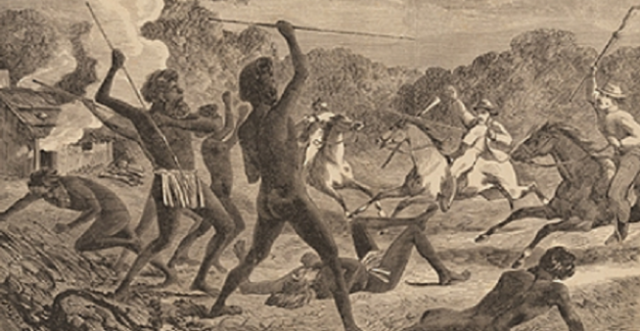
Another immediate impact of British settlement on the native population was the spread of diseases such as measles, smallpox and tuberculosis, which led to numerous deaths among the Aborigines. In the 19th century, for instance, smallpox was the leading cause of Aboriginal deaths.
The Aborigines soon became the minority group. Even after Australia was declared independent in 1901, they continued to be marginalized. In fact, they were not considered Australian citizens under the 1902 Australian Constitution. Citizenship was only granted to them following a national referendum in 1967.
Before that attempts were made to "breed out" Aboriginal culture through assimilation. As recently as the 1950's, as many as one-tenth of Aboriginal babies were removed from their natural parents and taken into foster care by non-Aboriginal families, thinking that this strategy will be to everyone's benefit. The massive and forced removal of Aboriginal babies known as the Stolen Generation came to widespread attention only in the late 1990's. Even then, it was only in February 2013 that the Australian government presented an apology for the Stolen Generation.
Today, the Aborigines make up only 2.5 percent (517,000) of the Australian population, according to the 2010 Australian Bureau of Statistics.
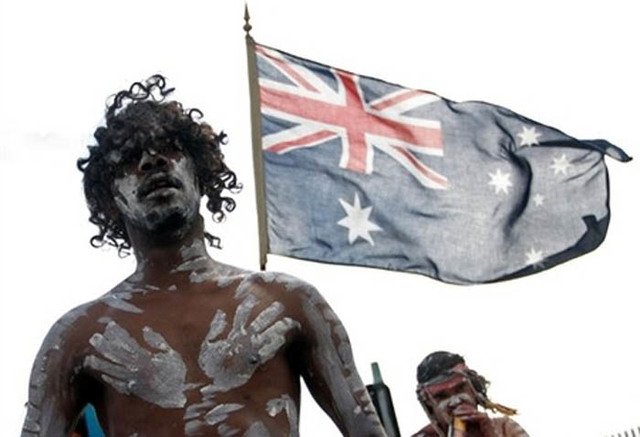
It has been difficult for white people to understand Aboriginal culture. As a result, racist attitudes toward the Aborigines continue to this day. Even among educated Aborigines, racism happens in the workplace. In a 2011 survey, it was found that more than 70 percent of Aboriginal academics and professional staff had experienced discrimination and racist attitudes at work. Aboriginal people also continue to feel misunderstood by white Australian politics. They claim that many Australian laws reflect the white man's point of view and do not represent their interests.
Two centuries of dispossession and maltreatment have left deep scars in surviving Aboriginal communities. Long-term discrimination and racism were responsible for their poorer health outcomes, according to the results of the National Aboriginal and Torres Strait Islander Social Survey of 2008. Aborigines who have experienced discrimination reported high or very high levels of psychological distress and had fair or poor health. It was also found that the life expectancy of Aborigines is about 15-20 years shorter than that of their non-indigenous counterparts. What's more, in most Australian states and territories, Aboriginal babies are two to three times more likely to be of low birth weight and about two to four times more likely to die at birth. Indigenous Australians die younger and are sick more frequently because in many places they do not have access to clean running water, decent nutrition and adequate housing with sanitation systems. Yet these can be very easily provided by Australian government if it truly wants to.
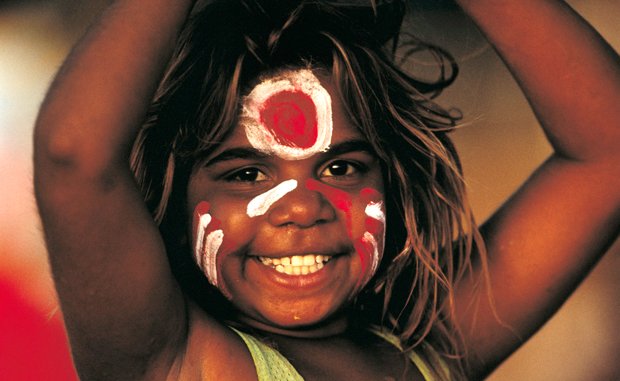
Aborigines are also three times more likely to be unemployed than non-indigenous Australians. Moreover, poor school retention, child abuse, poverty, crime ridden neighborhoods, lack of social support and drug and alcohol addiction are prevalent among them.
Some progress, in the face of these difficulties, Aboriginal Australians have begun to develop their strengths to meet the many challenges they face, particularly their struggle for land rights, greater autonomy in the management of Aboriginal affairs and more recognition and respect. In 1991, Australia's High Court finally overturned the disgraceful and illegal Terra Nullius. This led to the rediscovery of native tittles to continuously settled land, which had until been completely denied to the Aborigines.

It should also be noted that there are existing laws against discrimination and racism in Australia. The country became a signatory to the International Convention on the Elimination of Racial Discrimination in 1996. It ratified this agreement in 1975 with Racial Discrimination Act, which seeks to promote equality for all persons and prohibits discrimination against people on the basis of their race, color or national or ethnic origin.
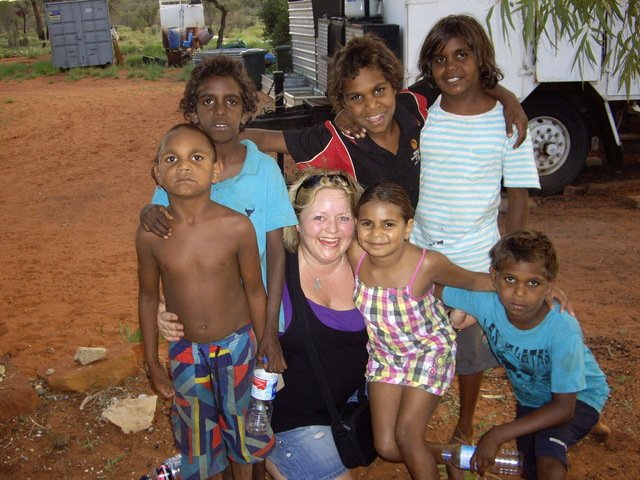
The poor implementation of the law has always been a problem, however, It would help the cause of the Aborigines if they continue to bring international attention to their plight to put pressure on the Australian government and at the same time capacitate themselves through education and reinforcing their unique cultural identity.

Image Source: 0 | 1 | 2 | 3 | 4 | 5 | 6 | 7 | 8 | 9 |
References:
https://en.wikipedia.org/wiki/Aboriginal_Australians
https://en.wikipedia.org/wiki/Indigenous_Australians
http://ngm.nationalgeographic.com/2013/06/aboriginal-australians/finkel-text
http://www.infoplease.com/spot/aboriginal1.html
https://www.britannica.com/topic/Australian-Aborigine
Follow me @lapilipinas
Im deeply ashamed of "my" government.. Resteemed
thanks ausbitbank..... followed......
My first real friend when I was a child was an aboriginal girl, she was a few years older and ignored the protests of her other friends, she took me under her wing and gave me a soft toy koala as a gift when she moved on to highschool. We bumped into each other not too long ago and I think she owns her own restaurant now.
My favorite thing in elementary school was learning about aboriginal culture, lovely art and people. <3
I give your post upvote.
Nice to share your story @cassandracomplex.
When a hi-tech culture encounters a low-tech culture,
so far, every time (that I am aware of).
the low-tech culture suffers.
sometimes badly.
I prefer low-tech, getting back in touch with nature, return to basics, I think most of the time we could all do with a technology detox.
how are you at flint knapping and hunting with a spear?
Only yesterday I once again found myself defending the plight of our original people. Most Aussies are so ignorant that they really have no idea of the true history of this country and the blood that was spilled in order for their ancestors to settle here. Every one of the original people of Tasmania were slaughtered!! To this day many continue to consider themselves superior to the original peoples. I laugh in the face of such ignorance. After all, the originals were the only ones who were smart enough to head inland in 1974 before cyclone Tracey flattened Darwin and killed 71 people.
My next door neighbor is Koori. She often brings a meal over to me when she has extra to share. We have a very nice little of system of giving and sharing going on between us. Sure she hits the turps a bit, as does just about everybody I know. The difference is, she admits she's a drunk. The rest merely sit on their high horses and point their fingers at the originals as though they are the only ones with a drinking problem. Defend an original and you put yourself in the line of fire. I'll keep doing it anyway. Ignorance kills and just like our original people the rest of them are starting to get a taste of the exact same injustices experienced by our originals. Problem is, they are too busy getting drunk and high to notice.
It is an awful shame how the aboriginal people have been treated in Australia. Unfortunately the same issues have and are facing ingenious communities elsewhere in the world as well. One thing I have noticed is that Goverments do not have the answer for these community's issues, millions ( probably Billions) of dollars wasted through misguided and poorly implemented assistantence schemes. The best results come when community pulls together to support individuals to feel a valued and individuals support the community. I hope that indigenous people can rise above the injustice and take the initiative to create their own image of a peaceful and sustainable community.
Thanks for upvoting my post. Upvoted.